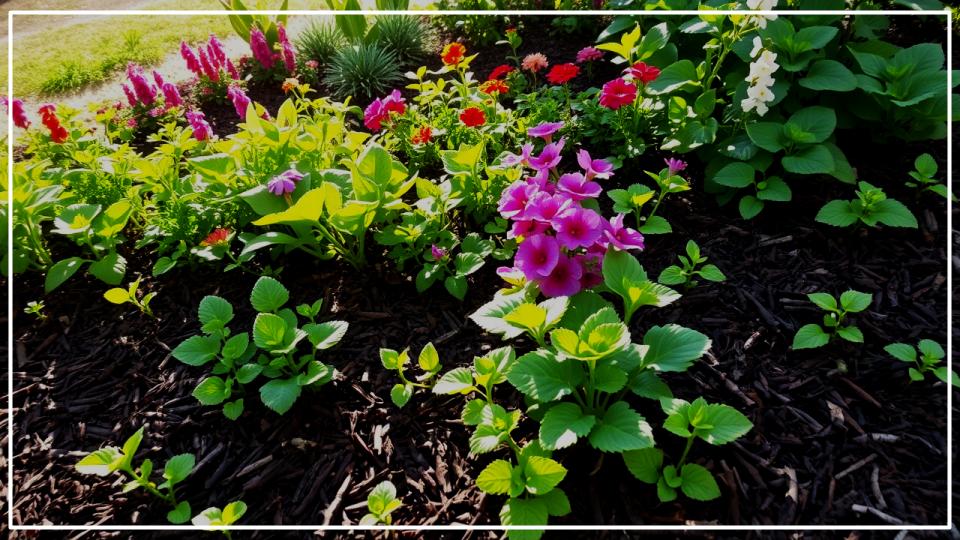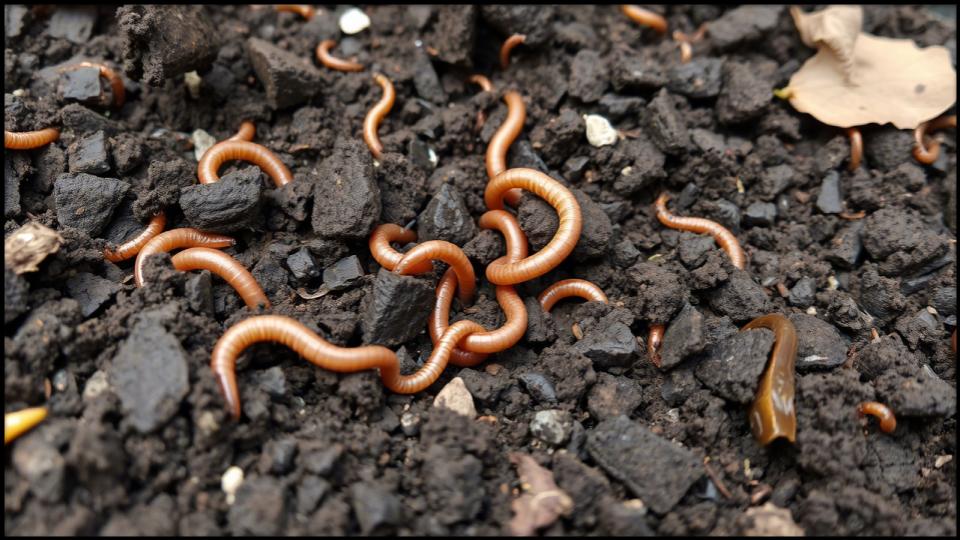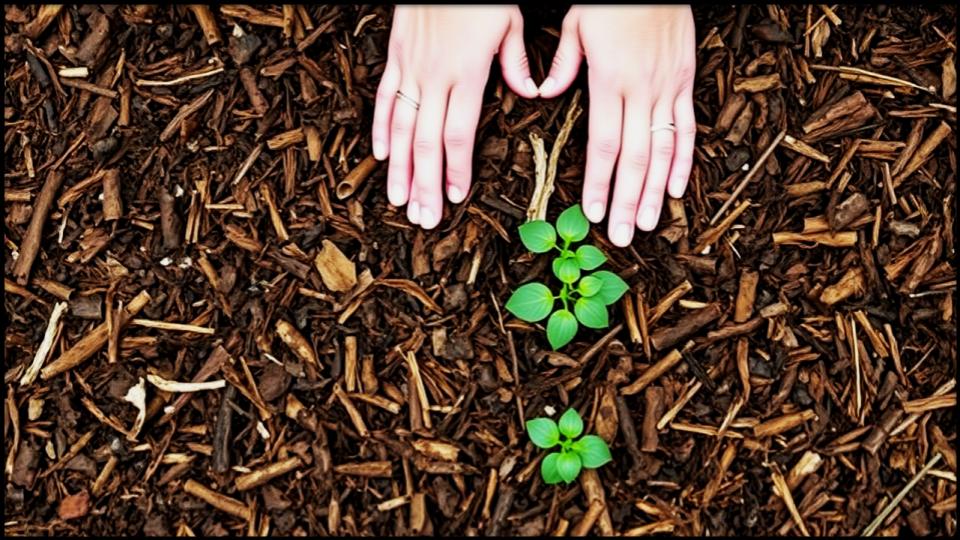
The garden is a dynamic tapestry, a living canvas that responds to our care – or lack thereof. As a seasoned horticulturist, I’ve witnessed countless transformations, both glorious and disheartening, in my own gardens and those I’ve advised. While many gardening tasks seem optional, a fundamental practice often overlooked in its annual commitment is Mulch Every Year. It’s more than just a finishing touch; it’s the silent guardian of your soil, the unsung hero of plant vitality, and the key to a thriving, low-maintenance landscape. Skip this crucial step, and you might find your verdant dreams slowly fading. This article will delve into the expert-backed reasons why consistent mulching is non-negotiable for a truly robust and beautiful garden.
Here’s what you need to know:
- Mulch nurtures soil health: It builds organic matter, improves structure, and feeds beneficial microorganisms.
- Weed woes multiply without mulch: Annual mulching is your best defense against pervasive weeds.
- Watering becomes a chore: Mulch is essential for moisture retention, significantly reducing your irrigation needs.
- Nutrient leaching accelerates: Bare soil is prone to nutrient loss, impacting plant vigor.
- Temperature extremes stress plants: Mulch insulates roots from heat and cold, providing a stable environment.
The Foundation of Life: Why Mulching Matters for Soil Health
At the heart of every successful garden lies healthy soil. It’s the living, breathing foundation that anchors your plants and provides them with essential sustenance. When we talk about mulching every year, we’re primarily talking about nurturing this vital ecosystem. Without the annual replenishment of organic mulch, your soil’s health begins a slow, silent decline.
In my own garden, particularly after a harsh monsoon season, I’ve seen firsthand how a lack of fresh mulch can leave the soil compacted and lifeless. According to the University of California Agriculture & Natural Resources, organic mulches decompose over time, adding valuable organic matter to the soil. This decomposition process is crucial; it improves soil structure, enhancing drainage in heavy clays and increasing water retention in sandy soils. Furthermore, it provides a steady diet for the countless beneficial microorganisms and earthworms that aerate the soil and make nutrients available to plant roots. Without this yearly addition, the soil can become depleted, leading to diminished microbial activity and a harder, less hospitable environment for roots to grow.

The Unending Battle: Weed Suppression Without Mulch
One of the most immediate and noticeable consequences of not Mulch Every Year is the relentless proliferation of weeds. Bare soil is an open invitation for opportunistic weed seeds to germinate and establish themselves. These unwelcome guests compete with your prized plants for water, nutrients, and sunlight, often winning the battle due to their aggressive growth habits.
A common mistake I see among new gardeners is underestimating the power of weeds. Skipping a year of mulching can set you back significantly. A study published by the Oregon State University Extension Service highlights that a 2-4 inch layer of mulch can suppress up to 90% of weed growth by blocking sunlight and inhibiting germination. When you don’t refresh your mulch annually, its thickness diminishes, and it loses its effectiveness as a physical barrier. Weed seeds, carried by wind or birds, find easy purchase in the thinning layer, and soon your garden beds are overrun, turning a peaceful sanctuary into a battleground requiring constant weeding—a task few gardeners relish.
The Thirsty Garden: Diminished Moisture Retention
Water is the lifeblood of your garden, and its efficient use is paramount, especially in regions with erratic rainfall or during dry spells. Mulch acts as a protective blanket, significantly improving moisture retention in the soil. This benefit alone makes Mulch Every Year an indispensable practice.
Consider a garden bed left unmulched during the peak of summer. The sun’s intense rays beat down directly on the soil, leading to rapid evaporation. You’ll find yourself reaching for the hose far more frequently, potentially wasting water and stressing your plants with inconsistent moisture levels. In my experience, even a slight breeze can rapidly desiccate bare soil, while a mulched bed retains its cool, damp composure. Research from the University of Florida IFAS confirms that mulching can reduce soil water evaporation by as much as 30% or more. Without this annual layer, the soil dries out faster, leading to drought stress, reduced plant growth, and ultimately, higher water bills.

Nutrient Leaching and Soil Erosion: The Hidden Drain
Beyond water, your plants rely on a steady supply of nutrients. Bare soil, especially on slopes or in areas prone to heavy rainfall, is highly susceptible to nutrient leaching and erosion. This means the vital food your plants need is literally washing away or sinking too deep for roots to access.
When you don’t top up your mulch annually, the soil’s surface is exposed to the elements. Heavy downpours can compact the soil, leading to increased runoff that carries away valuable topsoil and soluble nutrients. This is not just about losing fertilizer you’ve applied; it’s about losing the very structure of your soil that holds those nutrients. Over time, this nutrient depletion necessitates more frequent fertilization, which can be costly and, if not done carefully, can contribute to runoff pollution. Regular Mulch Every Year acts as a buffer, slowing down water movement, allowing it to penetrate the soil rather than run off, and reducing the loss of precious nutrients, as echoed by findings from the Cornell University Cooperative Extension.
Temperature Extremes: Stressing Your Plants
Just as we seek shelter from extreme heat or cold, plant roots also benefit from a stable temperature environment. Mulch acts as an insulating layer, protecting the soil from dramatic temperature fluctuations that can stress and damage plant roots.
Imagine the drastic temperature swings between a scorching summer day and a cool night, or the unpredictable freezes and thaws of late winter/early spring. Unmulched soil experiences these extremes directly. On hot days, bare soil can heat up to damaging levels, effectively “cooking” delicate feeder roots. Conversely, during cold snaps, unprotected soil can freeze solid, leading to frost heave that pushes shallow-rooted plants out of the ground, or it can simply chill roots to the point of dormancy or death. By Mulch Every Year, you maintain a more consistent soil temperature, keeping roots cooler in summer and warmer in winter. This thermal regulation, a key benefit highlighted by horticultural experts, reduces stress on your plants, leading to stronger growth and better overall health.
Pest and Disease Implications: An Unforeseen Consequence
While not always immediately apparent, neglecting mulching every year can also contribute to increased pest and disease issues in your garden. This is often an indirect consequence, stemming from the weakened state of plants grown in stressed environments.
Plants struggling with nutrient deficiencies, water stress, or temperature fluctuations are inherently more vulnerable to pest infestations and diseases. Their natural defenses are lowered, making them easier targets. For instance, plants stressed by inconsistent moisture are more susceptible to spider mites, while those in poorly draining, compacted soil are more prone to root rot. Furthermore, some diseases can splash up from bare soil onto plant leaves during watering or rain, spreading pathogens. A fresh layer of mulch acts as a barrier, preventing this soil-to-plant contact for certain diseases. Though mulch itself isn’t a cure-all, it supports robust plant health, making your garden more resilient against common ailments.
The Aesthetic and Practical Toll: More Than Just Pretty
Beyond the scientific and horticultural impacts, the absence of annual mulching takes a considerable aesthetic and practical toll on your garden. A garden is not just a collection of plants; it’s a reflection of care, a space for enjoyment and tranquility.
An unmulched garden often looks untidy, with patches of bare earth, emerging weeds, and visible soil compaction. This diminishes the visual appeal and can even make the garden feel less inviting. Practically, the constant battle against weeds, the increased watering demands, and the need for more frequent fertilization translate into significantly more work for the gardener. In my years of gardening, I’ve found that Mulch Every Year is one of the most effective ways to reduce overall garden maintenance. It frees up time for more enjoyable aspects of gardening, like planning new plantings, observing pollinators, or simply relaxing and appreciating your green space.
In the grand tapestry of gardening, Mulch Every Year isn’t just a suggestion; it’s a foundational pillar for a thriving, resilient, and beautiful landscape. It’s an investment in the health of your soil, a potent weapon against weeds, a conservator of precious water, and a protector against environmental stresses. As you step into your garden this season, consider the profound impact a fresh layer of mulch can have. It’s an act of deep care, a practice that rewards you with healthier plants, less work, and a garden that truly flourishes. Embrace this simple yet powerful habit, and watch your outdoor sanctuary transform, year after year.
Read More
9 Drought-Proof Trees So Tough, They Practically Water Themselves
